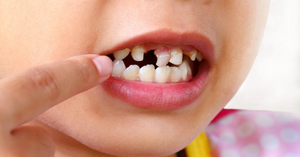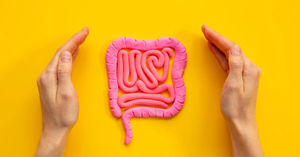Discover how sports participation boosts mental health in kids, tackles rising mental health issues, and learn practical tips for parents to support their child’s well-being.
The Alarming Decline in Children’s Mental Health
In recent years, the mental health of children has become a growing concern globally. According to the World Health Organization (WHO), nearly 10% of children and adolescents worldwide suffer from mental health disorders such as anxiety, depression, and attention-deficit hyperactivity disorder (ADHD). The COVID-19 pandemic exacerbated these issues, with increased screen time, social isolation, and disrupted routines fueling a rise in psychological distress.
A 2023 study published in the Journal of the American Academy of Child & Adolescent Psychiatry revealed that anxiety and depressive symptoms have doubled in children over the past decade, affecting 20% of kids aged 6–17 years. This concerning trend emphasizes the urgent need for effective interventions to address children’s mental health.
The Role of Sports in Promoting Mental Health
Participation in sports offers a natural, accessible, and proven method for improving children’s mental health. Physical activity, combined with social interaction, provides numerous psychological benefits, including:
1. Reducing Stress and Anxiety: Exercise stimulates the production of endorphins and serotonin, which help regulate mood and reduce stress.
2. Boosting Self-Esteem: Achieving milestones in sports, whether scoring a goal or learning a new skill, fosters a sense of accomplishment.
3. Enhancing Social Connections: Team sports promote camaraderie and teach children vital interpersonal skills like cooperation and empathy.
4. Improving Focus and Discipline: Structured physical activity helps children with ADHD and similar conditions by improving concentration and impulse control.
5. Building Resilience: Overcoming challenges in sports helps kids develop a growth mindset, making them better equipped to handle life’s adversities.
What Research Says About Sports and Mental Health
A study published in the Journal of Sports Science & Medicine found that children who participated in sports had a 25% lower risk of developing depression and anxiety compared to non-participants. The study emphasized that even casual participation in physical activities like cycling or swimming can significantly improve mental well-being.
Another research paper in the British Journal of Sports Medicine highlighted how regular involvement in team sports reduced symptoms of anxiety by up to 30%, especially in adolescents. These findings underscore the importance of integrating sports into children’s daily routines.
Best Sports for Children’s Mental Health
Different types of sports offer unique benefits for mental health. Here are some of the best options:
1. Team Sports (Football, Basketball, Cricket): Ideal for fostering social skills, teamwork, and a sense of belonging.
2. Individual Sports (Swimming, Martial Arts, Gymnastics): Encourage self-discipline, focus, and personal growth.
3. Outdoor Activities (Cycling, Hiking, Running): Exposure to nature further enhances mood and reduces stress.
4. Mind-Body Practices (Yoga, Dance): Improve mindfulness, flexibility, and emotional regulation.
Parents should allow children to explore various sports to identify activities that align with their interests and capabilities.
How Parents Can Monitor and Support Mental Health Through Sports
Parents play a crucial role in leveraging sports to benefit their children’s mental health. Here’s how they can help:
1. Observe Behavioral Changes: Watch for signs of stress, mood swings, or withdrawal, which may indicate mental health struggles.
2. Promote a Balanced Routine: Ensure children have time for academics, sports, and leisure without overburdening them.
3. Encourage Positive Reinforcement: Celebrate efforts and progress rather than just victories to boost confidence.
4. Limit Competitive Pressure: Allow kids to enjoy sports without excessive performance expectations.
5. Foster Open Communication: Create a safe space for children to express their feelings.
If parents notice persistent signs of mental health issues, they should seek professional guidance from pediatricians or child psychologists.
Incorporating Sports into Schools and Communities
Schools and communities can also contribute to improving children’s mental health through sports by:
• Offering Diverse Programs: Providing a range of sports options ensures inclusivity for children of all abilities and interests.
• Training Coaches in Mental Health Awareness: Coaches can act as mentors by recognizing and addressing early signs of mental health issues.
• Promoting Physical Education: Mandating regular physical activity in schools cultivates lifelong healthy habits.
• Collaborating with Mental Health Experts: Integrating counselors or therapists into sports programs can provide additional support.
The Future of Mental Health and Sports for Kids
As mental health challenges in children continue to rise, sports can be a cornerstone of prevention and intervention. Encouraging physical activity from an early age not only enhances physical health but also provides children with critical coping mechanisms to navigate life’s stresses.
Parents, educators, and policymakers must work together to create environments where sports are accessible and enjoyable for every child. By doing so, we can empower the next generation to thrive both mentally and physically.
Conclusion
The link between sports participation and improved mental health in children is undeniable. From reducing anxiety to building resilience, sports offer a holistic approach to tackling the mental health crisis among youth. As parents and communities, prioritizing sports in children’s lives is not just an investment in their physical health but also in their emotional well-being.
By nurturing their passion for play and movement, we equip children with the tools they need to lead happier, healthier lives.








Be the first one to comment on this story.